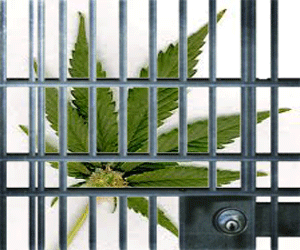
The Washington state legislature can not seem to pass a law that would vacate misdemeanor marijuana convictions so- one city decided to take matters into its own hands. Anyone guilty of a misdemeanor possession of marijuana charge in the city of Spokane will soon be able to have the conviction removed from his/her criminal record.
Spokane City Council on Monday voted 6-0 to pass legislation that will vacate municipal court convictions for misdemeanor marijuana possession prior to July 2014. But the convictions won’t go away automatically.
City Council President Ben Stuckart said he expects that by early next year those with possession convictions will be able to fill out a form with Spokane’s Municipal Court at the Public Safety Building to have the conviction vacated.
Supporters argued that the recent legalization of recreational marijuana made it unfair to penalize those who had been convicted of a low-level marijuana crime; those with the conviction could face difficulties finding housing and jobs, officials said.
Spokane’s measure was modeled after a state bill introduced earlier this year but never made it out of committee. Spokane City Council President Ben Stuckart, who proposed the measure, said it’s unfair to penalize people with low-level convictions over a drug that’s legal to possess in Washington.
“To me this is a no-brainer,” he told The Huffington Post. “If you’re 21 and have a misdemeanor conviction for having a little weed, you could carry that for the rest of your life — that’s not justice.”
By early next year, Spokane residents will be able to apply to have their convictions vacated by Spokane Municipal Court. The law only applies to municipal court convictions, ensuring that felony drug charges are heard in district court, The Spokesman-Review reports.
From 1997 to 2012, 1,817 convictions for misdemeanor marijuana possession were delivered in Spokane Municipal Court, according to court data included in a city briefing paper. The decision doesn’t affect offenses in Spokane County District Court.
He said an overwhelming number of those convictions were handed down to African-American and Native American residents. African-Americans make up 2.9 percent of the population, yet 13.7 percent of misdemeanor marijuana convicts between 1997 and 2012 were black, Stuckart said, citing court data presented at the hearing.
“There were definitely some racial equality issues with these convictions,” Stuckart said. “You see that throughout the criminal justice system. I hope this vote spurs other cities to act.”
He said he also hopes the vote will help students looking for federal aid or housing programs, since the federal government penalizes people applying for these program who have drug-related convictions.
Portland’s Metropolitan Public Defender’s office is holding “expungement clinics” to help low-level felony or misdemeanor convicts get a clean record if 10 years have passed since their conviction and they have not reoffended. More serious convictions, like growing marijuana, could be up for record-sealing in 2016, according to CBS Seattle.
Stuckart said he would like to see Spokane pave the way for other cities — and even the state — to embrace vacate laws. “Across the country, we need to give people second chances,” he said.

Be the first to comment
Sign in with